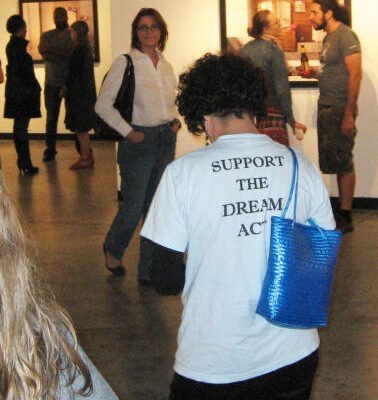

Panel Talk American DREAM
A panel conversation about immigration with Lupita Murillo Tinnen, Dallas area photographer; Ramiro Luna, Dallas DREAM activist; Loren Campos, Austin DREAM activist; Terri Givens, Associate Professor in the Government Dept., UT Austin; and Barbara Hines, Professor and Co-director of the immigration clinic at the UT Austin School of Law. The panel will examine this contentious issue and the unique barriers faced by these young students.
Learn more about the DREAM Act:
University Leadership Initiative DREAMers Without Borders Myths about the DREAM Act DREAMactivist.org Ramiro Luna on CBS, and at SMU.
The Development, Relief, and Education for Alien Minors Act (D.R.E.A.M. Act) is bipartisan legislation that addresses the situation faced by young people who were brought to the U.S. years ago as undocumented immigrant children who have since grown up here, stayed in school, and kept out of trouble. Each year about 65,000 U.S. raised students who would qualify for the D.R.E.A.M. Act’s benefits graduate from high school. These include honor roll students, star athletes, talented artists, homecoming queens, and aspiring teachers, doctors, and U.S. soldiers. They are young people who have lived in the U.S. for most of their lives and desire only to call this country their home. Even though they were brought to the U.S. years ago as children, they face unique barriers to higher education, are unable to work legally in the U.S., and often live in constant fear of detection by immigration authorities. Under the D.R.E.A.M. Act, once such a student graduates from high school, he or she would be permitted to apply for conditional status, which would authorize up to 6 years of legal residence. During the 6-year period, the student would be required to graduate from a 2-year college, complete at least 2 years toward a 4-year degree, or serve in the U.S. military for at least 2 years. Permanent residence would be granted at the end of the 6-year period if the student has met these requirements and has continued to maintain good moral character.



